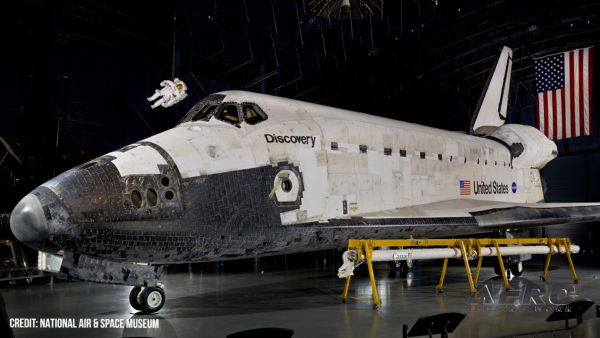Internships Can Lead To Jobs, Type Ratings, More
 During the last decade, FlightSafey International and Kansas
State University Salina have built a strong relationship.
"FlightSafety's Wichita Learning Center currently employs six
K-State Salina alumni -- two full-time employees, one part-time
employee and three interns," said Rich High, manager of
FlightSafety's Cessna Learning Center in Wichita.
During the last decade, FlightSafey International and Kansas
State University Salina have built a strong relationship.
"FlightSafety's Wichita Learning Center currently employs six
K-State Salina alumni -- two full-time employees, one part-time
employee and three interns," said Rich High, manager of
FlightSafety's Cessna Learning Center in Wichita.
"This internship is a tremendous opportunity for our students,"
said Bill Gross, chief pilot with the K-State aviation program.
"They learn two or three jets inside and out, backward and forward
and get very good at it, which makes them ideal pilots for those
aircraft. Because they become so good at those aircraft, companies
are willing to hire them with lower flight time. The interns are
well-positioned to get a job, as K-State alumni have a 100 percent
hire rate after their FlightSafety internship ends."
"Interns often serve as crew for our customers," High said. "We
see about 6,000 people a year from all over the world, so not only
are they learning aircraft and avionics systems, but they are also
getting to know other companies as they fly with their pilots. Some
of those companies ask our interns to come fly for them part time,"
High said.
According to High, K-State's aviation program creates pilots
that are a good fit for FlightSafety. "Your co-pilot plays a large
role in your success with a check ride," he said. "K-State pilots
create a good cockpit environment. They bring youth, they're
willing to work any hours, they have a good attitude and know their
stuff; nobody that we've hired has been a lightweight. They are
extremely knowledgeable about aviation as a whole, and know the
rules and regulations, which is important because customers come to
us to be experts."
Interns can expect to spend 15-20 hours a week in the right
seat. They will also spend time in the left seat, as training
requires FlightSafety customers to also experience the aircraft as
a co-pilot.
 When their year is up High gets involved with helping interns
find employment, even going as far helping negotiate a starting
salary. "We want our interns to know they will be taken care of,"
High said. "The high-quality training and experience they receive
at our Learning Centers not only helps them to secure employment,
it reflects the strength of FlightSafety's training programs and
encourages the company that hires them to train with us if they are
not already."
When their year is up High gets involved with helping interns
find employment, even going as far helping negotiate a starting
salary. "We want our interns to know they will be taken care of,"
High said. "The high-quality training and experience they receive
at our Learning Centers not only helps them to secure employment,
it reflects the strength of FlightSafety's training programs and
encourages the company that hires them to train with us if they are
not already."
"If an intern has logged 1,000 hours or more, FlightSafety helps
them get a type rating, which saves them $15,000 to $20,000-plus,"
Gross said. "And they're getting paid on top of it.
But not all of FlightSafety International's interns are pilots.
Rachel Farmer, a 2008 K-Sate Salina graduate, was recently promoted
to director of quality management systems -- the position she was
the intern for just three years ago. "I can't imagine working
anywhere else," she said. "I plan to stay with FlightSafety for a
very long time."
The Brookville native started her internship in January 2008 as
the assistant to the director of quality management systems. By
November of that year she had been hired full-time as the
operations support and compliance coordinator.
"I started out taking business classes," Farmer said. "I was
interested in aviation, but I didn't want to fly for a living. I
realized I could take classes to get the background I would need to
enter the aviation industry through the technology management
degree program, so I got a good foundation that prepared me for
coming into the industry. When I started looking for internships
during my junior year, I thought that Flight Safety would be a good
fit."
 Airborne 07.02.25: TikToker Arrested, Vietnam A/L Ground Hit, ATC Modernization
Airborne 07.02.25: TikToker Arrested, Vietnam A/L Ground Hit, ATC Modernization Airborne Affordable Flyers 07.03.25: Sonex HW, BlackShape Gabriel, PRA Fly-In 25
Airborne Affordable Flyers 07.03.25: Sonex HW, BlackShape Gabriel, PRA Fly-In 25 ANN's Daily Aero-Term (07.07.25): Discrete Code
ANN's Daily Aero-Term (07.07.25): Discrete Code Classic Aero-TV: DeltaHawk Aero Engine Defies Convention
Classic Aero-TV: DeltaHawk Aero Engine Defies Convention ANN's Daily Aero-Linx (07.07.25)
ANN's Daily Aero-Linx (07.07.25)




